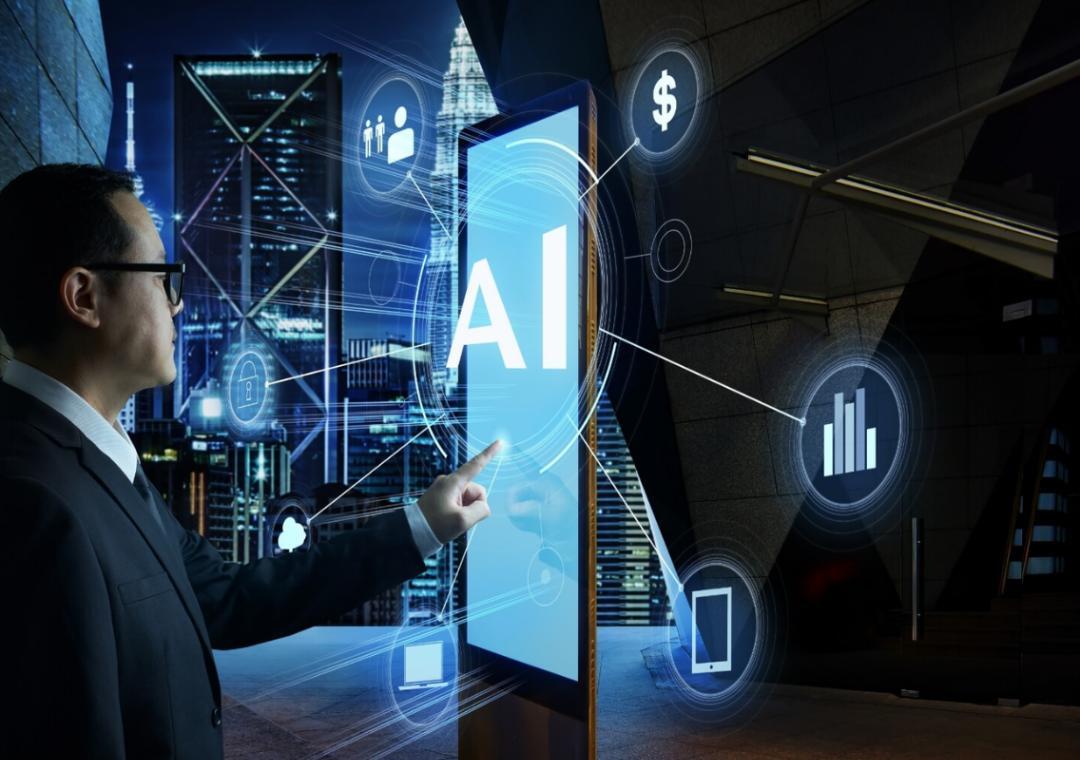
AI & ML now power over 77% of business processes
In today’s digital-first world, businesses are constantly looking for ways to stay ahead of the competition and improve their overall performance. One of the most effective ways to achieve this is by leveraging Artificial Intelligence (AI) and Machine Learning (ML) technologies. Gone are the days when AI and ML were considered futuristic concepts; they are now operational essentials that have become an integral part of many businesses.
According to a recent report, over 77% of enterprises are now using AI and ML to improve productivity, reduce costs, and personalize user experiences. This shift is not optional; it’s fundamental to staying competitive in a rapidly changing business landscape.
But what exactly is AI and ML, and why are they so important for businesses? In this blog post, we’ll explore the answers to these questions and examine the various ways in which AI and ML are being used to transform businesses.
What is AI and ML?
Artificial Intelligence refers to the development of computer systems that can perform tasks that would typically require human intelligence, such as learning, problem-solving, and decision-making. Machine Learning, on the other hand, is a subset of AI that involves training algorithms to learn from data and make predictions or decisions without being explicitly programmed.
In simpler terms, AI is like a super-smart computer that can think and learn like a human, while ML is like a highly advanced algorithm that can analyze data and make informed decisions.
How is AI and ML important for businesses?
So, why are AI and ML so important for businesses? Here are some reasons:
- Automation: AI and ML can automate repetitive and mundane tasks, freeing up human resources to focus on more strategic and creative work.
- Improved customer experience: AI-powered chatbots and virtual assistants can provide 24/7 customer support, helping businesses to respond quickly to customer queries and concerns.
- Data analysis: ML algorithms can analyze large datasets to identify patterns and trends, helping businesses to make data-driven decisions and stay ahead of the competition.
- Fraud detection: AI-powered systems can detect fraudulent activities in real-time, reducing the risk of financial losses and protecting customer data.
- Personalization: AI-powered systems can analyze customer behavior and preferences, enabling businesses to personalize their marketing campaigns and improve customer engagement.
- Predictive maintenance: AI-powered systems can predict equipment failures and schedule maintenance, reducing downtime and improving overall efficiency.
- Supply chain optimization: AI-powered systems can optimize supply chain operations, reducing costs and improving delivery times.
Examples of AI and ML in business
So, how are businesses using AI and ML in practice? Here are some examples:
- Customer support: AI-powered chatbots are being used by businesses to provide 24/7 customer support, helping to reduce wait times and improve customer satisfaction.
- Fraud detection: AI-powered systems are being used by banks and financial institutions to detect fraudulent activities in real-time, reducing the risk of financial losses.
- Personalization: AI-powered systems are being used by e-commerce businesses to personalize product recommendations and improve customer engagement.
- Predictive maintenance: AI-powered systems are being used by manufacturing businesses to predict equipment failures and schedule maintenance, reducing downtime and improving overall efficiency.
- Supply chain optimization: AI-powered systems are being used by logistics companies to optimize supply chain operations, reducing costs and improving delivery times.
Conclusion
In conclusion, AI and ML are no longer futuristic concepts; they are operational essentials that have become an integral part of many businesses. With AI and ML, businesses can automate repetitive tasks, improve customer experiences, analyze data, detect fraud, personalize user experiences, predict equipment failures, and optimize supply chain operations.
The shift to AI and ML is not optional; it’s fundamental to staying competitive in a rapidly changing business landscape. Businesses that fail to adopt AI and ML technologies risk being left behind, while those that do will be better equipped to stay ahead of the competition and achieve success.
Source:
https://www.growthjockey.com/blogs/what-is-ai-and-ml-how-is-it-important
Note: The above blog post is based on the article “What is AI and ML? How is it Important?” published on Growth Jockey’s blog.






